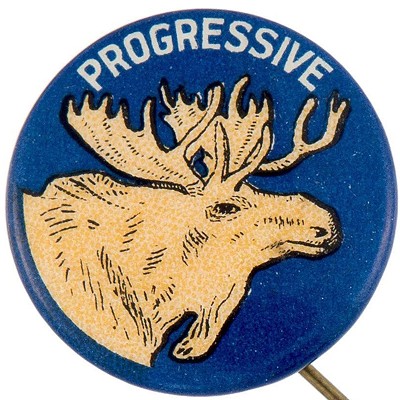by Sheri Boggs
Their names alone could heal. If you've ever stood in the supplements section of your favorite health food store, quietly reading the labels aloud, you know what I mean. Black Cohosh Root, Slippery Elm, Colloidal Silver, Cat's Claw, Blessed Thistle... they sound like magic ingredients from the Brothers Grimm, or perhaps items that might be of use to the three witches in Macbeth. And then there are the ones with fantasy names, or abbreviations that make them sound like new Star Trek characters: Ginkgo Biloba, Spirulina, 5-HTP and SAM-e.
But really, what is this stuff, and furthermore, why do we need it? Supplements are a loose group defined by the Dietary Supplement Health and Education Act of 1994 as products "taken by mouth that contain a dietary ingredient intended to supplement the diet." They include, but are not limited to, vitamins, minerals, amino acids, herbs and other botanicals, enzymes, organ tissues, metabolites and glandulars. People turn to supplements for a variety of reasons, most often to augment the sub-standard nutritional properties of modern food.
"People are definitely realizing that the quality of food is down in general. Due to modern farming techniques, important minerals are often missing and people are concerned that their food sources aren't supplying what they need," says Chris Bansemer, owner of Lorien Herbs and Natural Foods. "The stress of modern life alone is good reason to supplement the diet."
In addition to trying to shore up the holes inherent in the modern diet, folks also take supplements in the hopes of targeting a specific health concern.
"I think people turn to supplements out of an overall frustration with everything else they've tried," says Mark Roloff, co-owner of Total Health Center on Thor. "After years of standard medical care and not feeling any better, people can get somewhat hopeless. So it's great for them to be able to take charge of their health this way and realize, 'Hey, there's things I can do.' I've seen some outstanding responses."
While supplements can sometimes bring about seemingly miraculous cures, it's not a great idea to just start grabbing bottles from the health food store shelves without knowing what the product is and what it does.
"We have about a 50/50 split in our customers," says Judi Miller, Huckleberry's natural living specialist. "About half of them have been to see the naturopath and they come in with a list of things they've been recommended. The other half have been reading and educating themselves, so they know what they're looking for."
Although it's imperative to do your research -- either via natural healing professionals or books on the subject -- everyone we talked to brought up the need to also know your own body.
"It's great to have the research, to know what it is you have in your hand and what it does, but it's equally important to know your own body and know when you're having an abnormal reaction, like a rash, nausea or a headache, to something," says Miller.
We talked to four "supplement experts" from local health food stores -- Huckleberry's, Total Health Center, Pilgrim's and Lorien -- and while they report that their supplement sales have either been strong all along or experiencing a gentle increase, they also indicated that certain areas are experiencing big growth. What follows is a short list of what's hot and new in the supplement world. Interestingly, all the supplements mentioned at the beginning of the article have passed from "hot new herb" into "mainstream supplement" status.
Fat Flush Plan - "The supplements that go along with the Fat Flush Plan are huge right now," says Katie Hoffman, assistant manager of Pilgrim's on Howard. "All the women downtown seem to be on it." In fact, all the health food stores we spoke to touted the popularity of local author Ann Louise Gittelman's bestselling book and supplementation program, which includes such fat-burners as CLA (conjugated linoleic acid) and GLA (gamma linoleic acid) as well as "healthy fats" evening primrose oil and flaxseed oil.
Relora - In a similar vein, local stores haven't been able to keep Relora, a patented combination of magnolia and rhododendron, in stock. A recent article in Woman's World espoused not only the fat-burning properties of Relora, but also its ability to ease irritability and stress. "I had never heard of it," says Miller, "but as soon as the article came out, we've had enormous demand."
New Formulations - Chris Bansemer of Lorien says that supplements in liquid or powdered form are becoming increasingly favored for their higher rates of absorption. "And coral calcium is really big right now because it's 100 percent absorbable by the body," she adds. "Calcium carbonate, which is what most people are familiar with, is only 2-20 percent absorbable." Supplements in cream form, as popularized in such books as The Wrinkle Cure, by Dr. Nicholas Perricone, are some of the most sought-after skin treatments on the market.
Healthy Joints - MSM (Methylsulfonylmethane) and Glucosamine combinations are as popular for their aid in repairing and strengthening the joints as they are for their other uses. "MSM and Glucosamine are huge right now, both for their anti-aging properties, and they've also proven very helpful in trauma situations and with arthritis," says Mark Roloff of Total Health Center. MSM and Glucosamine, which aid in promoting healthy cartilage specifically, are also of use to the bodybuilding crowd.
Out of Your System - It's a subject that most of us find pretty icky, but several health food stores told us that "internal cleansing kits" are "really moving quite nicely." Kits usually consist of several herbal remedies to help the body slough off "stuff" that's overstayed its welcome in the lower intestine and colon. Sometimes there's even an enema (eek!) to assist the herbs in their goal. "We're selling a lot of internal cleansing products," says Bansemer. "People are really interested in detoxifying and cleansing their systems as a way of alleviating fatigue."
Taking the Waters - For years there have been mineral waters, sparkling waters and even waters enhanced with electrolytes. And now, there's Penta Water. "It's broken down into molecular sets of five, so it's like getting an instant hit of water," says Pilgrim's Katie Hoffman. "It doesn't slosh around in your stomach -- and I'm being serious here -- a small bottle supplies the hydration you'd get with a much larger amount of regular water, so it's great for energy or for when you're hung over. It's kind of the new hip thing."
Feelin' Hormonal - Human Growth Hormone (HGH) was one of the things that came up over and over again in our conversations with health store personnel. "We get more phone calls about this than probably anything else," say Hoffman. "It's supposed to stop your aging, promote beauty, build muscle mass. It supposedly works in all these different areas."
Major Multiples - Rather than focusing on one or two specific vitamins or minerals, say Vitamin B12 or iron, several high potency, whole foods-sourced vitamins on the market (Source of Life is a good example) offer a person's best chance of filling in the gaps of a sketchy or otherwise incomplete diet. Total Health Center's Mark Roloff remembers a customer whose 20-year struggle with candida (excessive yeast growth in the body) was relieved by taking a 100 percent food-based vitamin product called Perfect Food.
"It's kind of pricey, but when you've got people who've tried everything and nothing has worked and then they try something like this and it's completely helped them," says Roloff, "suddenly that money issue starts fading."
Like fad diets, there's always a new supplement or vitamin that's making headlines and selling like crazy. Again, our experts advise that before you jump headfirst into the Next Big Thing you do your own research. Consult with a natural health provider or doctor when necessary.
Healthy Living - Vitamins
[
{
"name": "Broadstreet - Instory",
"component": "25846487",
"insertPoint": "4",
"requiredCountToDisplay": "4"
},{
"name": "Broadstreet - Empower Local",
"component": "27852456",
"insertPoint": "8",
"requiredCountToDisplay": "8"
},{
"name": "Broadstreet - Instory",
"component": "25846487",
"insertPoint": "12",
"requiredCountToDisplay": "12"
},{
"name": "Broadstreet - Instory - 728x90 / 970x250",
"component": "27852677",
"insertPoint": "18",
"requiredCountToDisplay": "18"
},{
"name": "Broadstreet - Instory",
"component": "25846487",
"insertPoint": "5th",
"startingPoint": "23",
"requiredCountToDisplay": "24",
"maxInsertions": 100
}
]















